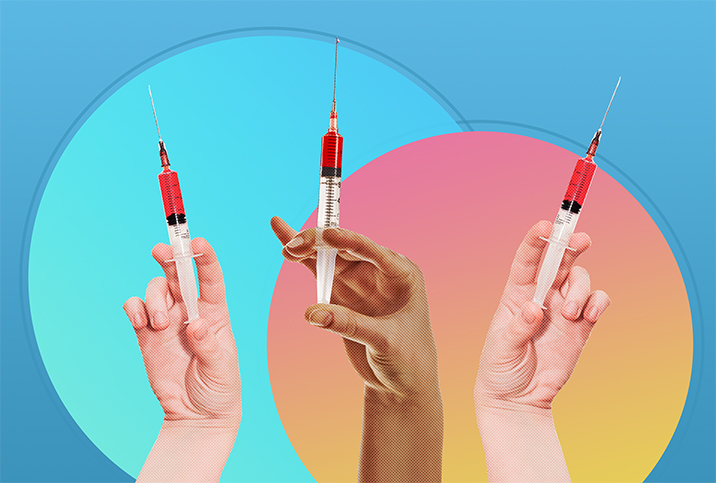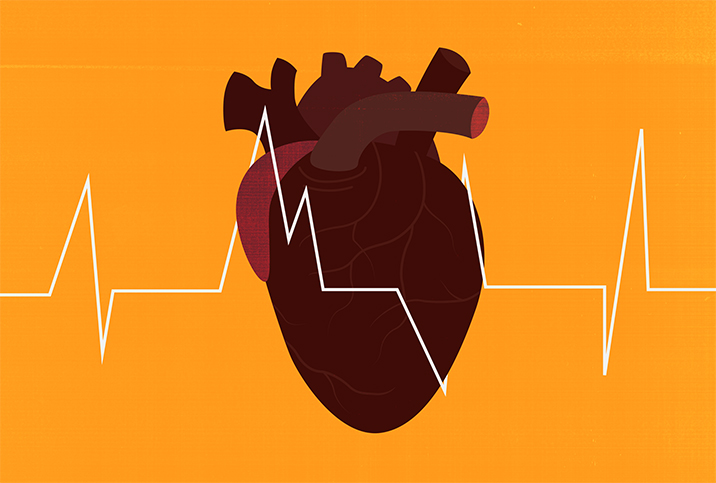Assessing Your Risk of Having a Stroke

May is recognized in the United States as National Stroke Awareness Month. But as we march on through the rest of the year, it's never too late to consider your potential risks, especially when about 800,000 Americans will suffer a stroke this year. Globally, 1 in 4 people older than age 25 will have one at some point in their lifetime.
"Eighty-five percent of strokes are caused by a blood clot, while the other 15 percent are caused by a burst blood vessel," said Patrice Lindsay, B.Sc.N., director of health systems change and stroke specialist for the Heart and Stroke Foundation of Canada.
Taking on new life strategies to avoid having a stroke is a smart initiative, as a stroke introduces a whole host of mental and physical stresses and side effects that affect quality of life, even if just in the short term. It's unlikely sex will be top of mind directly following a stroke, but as recovery continues, you could experience a lack of desire, physical ability and confidence that will require work to get your relationship back to former intimate heights.
Genetic stroke causes
Genetic testing is in its relative infancy, but many healthcare professionals use it to evaluate genetic factors that can lead to chronic conditions. These tests can also identify genetic markers which might determine the likelihood of patients developing secondary conditions associated with their present health.
"The medical community is actively researching the genetic factors of stroke and cardiac diseases," Lindsay said. "Unfortunately, this research has a long way to go before it can be helpful in preventing strokes and other cardiac events."
Researchers know genetic factors exist that may predetermine the likelihood of stroke, but identifying exact genetic markers, and more precisely determining their impact on the likelihood of stroke and associated risk factors, remains an ongoing process. The hope is that one day, everyone will have a personalized genetics profile that can be used as a preventive care tool to plan for or to prevent potential stroke.
Until this medical advance becomes a reality, knowing your family history of heart disease, high blood pressure, heart attacks and stroke plays an important role in assessing your risk factors. Preexisting diseases such as diabetes, heart disease and kidney disorders exponentially increase your chances of having a stroke or another cardiac event. For this reason, many physicians create a preventive care plan for patients with a chronic disease that focuses primarily on managing the chronic condition to prevent damage to the heart and arteries.
Chronic diseases and health factors
Chronic diseases like diabetes and high blood pressure can place patients at increased risk for having a cardiovascular event, such as a stroke or heart attack, compared to people without chronic disease. An unhealthy lifestyle or diet can further compound risks for people with underlying chronic health conditions, and for those without, can put a strain on the body's normal functioning, which eventually accelerates damage as well as wear and tear of the arteries and heart over time.
The most common cause of a stroke is a buildup of blood cells, or a clot, within large and medium-size vessels in the body. Over time, this clot gets bigger and bigger. Eventually, a portion of the clot may break loose and make its way to the brain, where it can lodge into an important vessel or vessels and occlude the supply of the blood carrying oxygen to the brain, eventually killing the cells within the brain supplied by those vessels. This circumstance can cause loss of speech and motor function, and in some cases, this lack of oxygen can precipitate long-term and even permanent damage.
Poor dietary and lifestyle choices—especially high fat/cholesterol diets and particularly where diabetes may be an issue—can increase the likelihood of developing a clot, because these clots often form in the arterial walls that contain plaque deposits. These deposits act as obstructions to regular blood flow, which makes the heart work harder to pump blood. Over time, blood cells get stuck on this plaque and build a clot.
As the heart continues to work harder, blood vessels can become weakened, which can increase the chance of a stroke caused by a blood vessel rupture. High blood pressure is the first warning sign for stroke because it indicates the heart is working harder, potentially indicating plaque buildup somewhere in your body.
"High blood pressure is the number one risk factor for stroke," noted Sheryl Martin-Schild, M.D., Ph.D., the statewide stroke medical director for the Louisiana Emergency Response Network. "About half of all strokes can be prevented through control of blood pressure, and other common chronic conditions which contribute to stroke include diabetes, high cholesterol, heart disease, obstructive sleep apnea and alcoholism."
She explained that all of these factors can be reduced or eliminated by correcting the at-risk behavior with healthy diet and lifestyle choices.
"Any stress causes the body to work harder because of the chemical changes that stress causes," Lindsay said. "However, many people don't realize that untreated mental health conditions, like depression, mood disorders and other conditions that change the chemical balance of the brain and body, can also increase your risk of a stroke."
Previous health complications
An important factor in determining your risk factors for stroke is identifying previous health complications that put a strain on the heart. Altered health patterns caused by the flu, cancer, radiation treatment, vein disorders and even pregnancy can increase your risk of stroke, because all of these conditions can strain and eventually cause remodeling of the heart and blood vessels, which can lead to a weakened cardiovascular system.
"With so much focus on COVID-19, many patients are forgetting their annual preventative care," Lindsay explained. "Simple steps like getting a flu shot, annual bloodwork and wellness checks are the most important assessments that patients need to make a priority."
Another potentially fatal misconception is that previous "smaller" cardiac events can be brushed off. In the term "mini-stroke," for example, the inclusion of the prefix "mini" seems to make people think it's no big deal. It's like eating one mini-donut. It won't hurt me. It doesn't count.




















